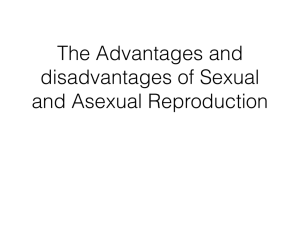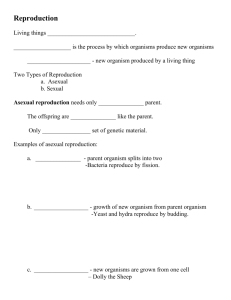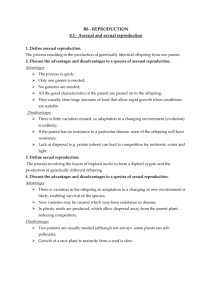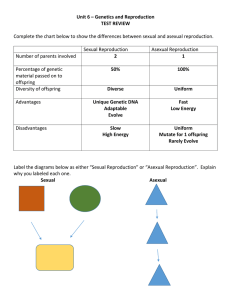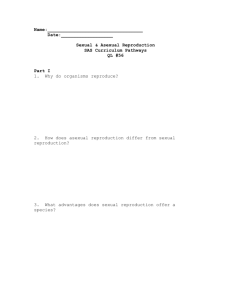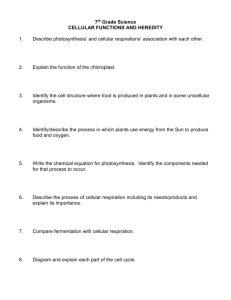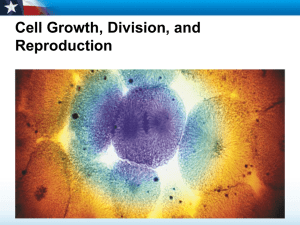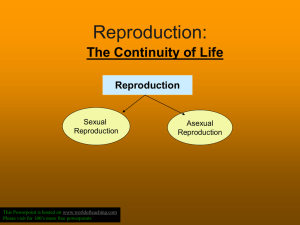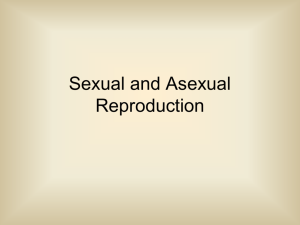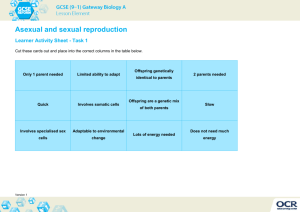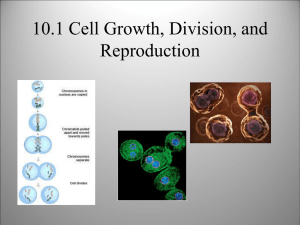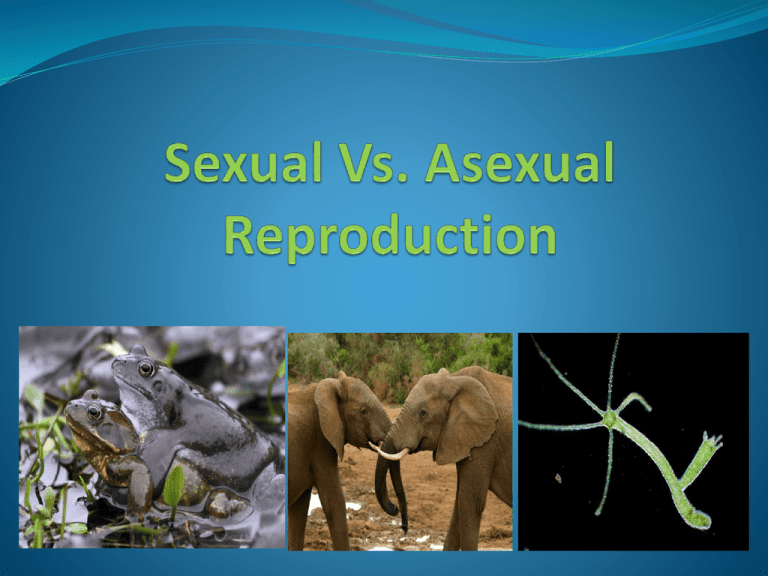
Why is reproduction important?
Is a process that creates new offspring . DNA or genes
are passed from one generation to the next.
Reproduction helps populations grow.
Reproduction reduces the chances of species
becoming extinct.
There are two types of
reproduction: Sexual and Asexual
SEXUAL REPRODUCTION: requires both a male and a
female. The DNA of the offspring is a combination of both
parents.
Examples: humans, dogs, birds, some plants.
ASEXUAL REPRODUCTION: only involves one organism.
The organism makes an identical copy of itself, or a clone.
Examples: Bacteria, some plants, protists.
Comparison Chart
:
Characteristics:
Asexual
Sexual
Number of organisms
involved
One parent needed
Two parents are required
to mate
Advantages
Time Efficient; no need
to search for mate,
requires less energy
Variation, Unique.,
organism is more
protected
Disadvantages
No variation - if the
parent has a genetic
disease, offspring does
too.
Requires two organisms,
requires more energy
Evolution
There is very little chance
of variation with asexual
reproduction.
Sexual reproduction leads
to genetic variation in
new generations of
offspring. This is
fundamental to
evolution.
found in
Simple organisms
higher invertebrates and
all vertebrates
Read “The Aspen Story” pg. 403
BSCS book
Discuss as a class.
Review. Sexual vs. Asexual reproduction (BrainPop)

